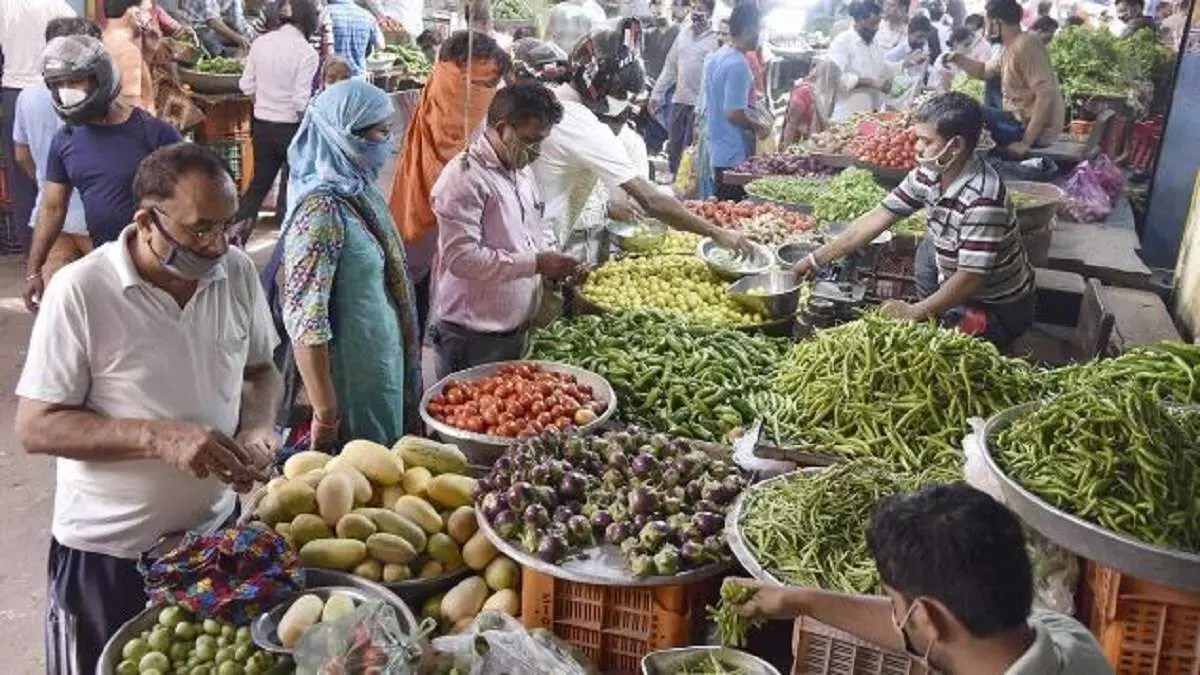Food prices push wholesale inflation to 9-month high of 0.73% in December

New Delhi: The Wholesale Price Index (WPI)-based inflation climbed to a nine-month high of 0.73 per cent in December 2023, primarily driven by a sharp rise in food prices. This marks a significant reversal from April to October, when WPI inflation remained negative, and from November’s modest 0.26 per cent increase. In December 2022, it was 5.02 per cent.
“The positive inflation rate in December is mainly due to price increases in food articles, machinery & equipment, other manufacturing, other transport equipment, and computer, electronics & optical products,” the Commerce and Industry Ministry stated on Monday.
This December figure surpasses the previous WPI high of 1.41 per cent recorded in March 2023. Food inflation specifically surged to 9.38 per cent from 8.18 per cent in November, with paddy, pulses, and vegetables contributing significantly.
Vegetable inflation soared to 26.30 per cent in December, while pulses saw inflation of 19.60 per cent. Paddy inflation also jumped to 10.54 per cent. Notably, onion prices continued their double-digit ascent, spiking 91.77 per cent since August 2023. Potato prices, however, remained deflationary at -24.08 per cent.
While the fuel and power segment displayed deflation at -2.41 per cent (compared to -4.61 per cent in November), manufactured products inflation stayed flat at -0.71 per cent.
Barclays analysts noted in their report that the inflation trajectory suggests input costs remain under control, with food and manufactured product price momentum easing significantly. They anticipate the Reserve Bank of India (RBI) to initiate monetary easing from June, with three 25 basis point rate cuts expected this year.
The RBI maintained its status quo on interest rates during its December monetary policy review, citing potential risks of rising food inflation in November and December. Rating agency ICRA attributed the WPI rise to fuel, food, and crude items, while noting manufactured non-food prices remained in deflation for the 10th consecutive month. They project WPI inflation to rise marginally in January 2024 due to base effects, but remain below 1 per cent.
India Ratings & Research Principal Economist Sunil Kumar Sinha emphasized the continued deflationary stance of manufactured products, the largest WPI component, as a positive signal. They expect WPI inflation to reach 1.1 per cent in January 2024, but believe the RBI will likely maintain its current policy stance due to still-elevated retail inflation.
CareEdge Chief Economist Rajani Sinha anticipates WPI inflation to remain around 1 per cent throughout the remaining fiscal year, aided by easing global commodity prices. However, he highlighted uncertainties surrounding the Kharif harvest, Rabi sowing progress, geopolitical tensions, and global growth dynamics as key monitoring points.
Core inflation, reflecting underlying price pressures, remained in deflationary territory at -0.5 per cent in December, marking the 10th consecutive month of decline due to lower input costs (especially commodities) in the manufacturing sector. However, retail inflation (CPI) rose to a 4-month high of 5.69 per cent in December, as revealed last week.



